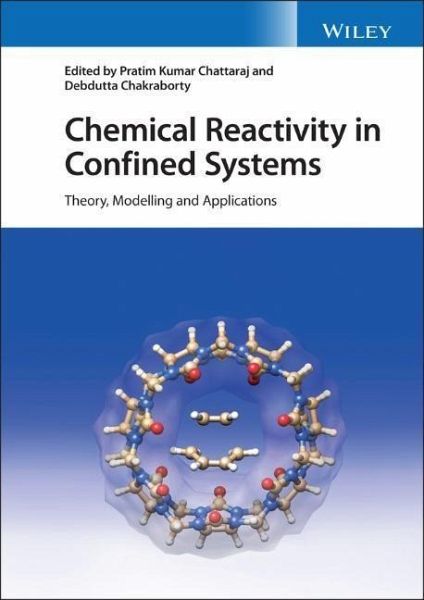
Chemical Reactivity in Confined Systems
Theory, Modelling and Applications
Herausgegeben: Chattaraj, Pratim Kumar; Chakraborty, Debdutta
Versandkostenfrei!
Versandfertig in über 4 Wochen
198,99 €
inkl. MwSt.
Weitere Ausgaben:

PAYBACK Punkte
99 °P sammeln!
An insightful analysis of confined chemical systems for theoretical and experimental scientistsChemical Reactivity in Confined Systems: Theory and Applications presents a theoretical basis for the molecular phenomena observed in confined spaces. The book highlights state-of-the-art theoretical and computational approaches, with a focus on obtaining physically relevant clarification of the subject to enable the reader to build an appreciation of underlying chemical principles.The book includes real-world examples of confined systems that highlight how the reactivity of atoms and molecules chang...
An insightful analysis of confined chemical systems for theoretical and experimental scientists
Chemical Reactivity in Confined Systems: Theory and Applications presents a theoretical basis for the molecular phenomena observed in confined spaces. The book highlights state-of-the-art theoretical and computational approaches, with a focus on obtaining physically relevant clarification of the subject to enable the reader to build an appreciation of underlying chemical principles.
The book includes real-world examples of confined systems that highlight how the reactivity of atoms and molecules change upon encapsulation. Chapters include discussions on recent developments related to several host-guest systems, including cucurbit[n]uril, ExBox+4, clathrate hydrates, octa acid cavitand, metal organic frameworks (MOFs), covalent organic frameworks (COFs), zeolites, fullerenes, and carbon nanotubes. Readers will learn how to carry out new calculations to understand the physicochemical behavior of confined quantum systems.
Topics covered include:
_ A thorough introduction to global reactivity descriptors, including electronegativity, hardness, and electrophilicity
_ An exploration of the Fukui function, as well as dual descriptors, higher order derivatives, and reactivity through information theory
_ A practical discussion of spin dependent reactivity and temperature dependent reactivity
_ Concise treatments of population analysis, reaction force, electron localization functions, and the solvent effect on reactivity
Perfect for academic researchers and graduate students in theoretical and computational chemistry and confined chemical systems, Chemical Reactivity in Confined Systems: Theory and Applications will also earn a place in the libraries of professionals working in the areas of catalysis, supramolecular chemistry, and porous materials.
Chemical Reactivity in Confined Systems: Theory and Applications presents a theoretical basis for the molecular phenomena observed in confined spaces. The book highlights state-of-the-art theoretical and computational approaches, with a focus on obtaining physically relevant clarification of the subject to enable the reader to build an appreciation of underlying chemical principles.
The book includes real-world examples of confined systems that highlight how the reactivity of atoms and molecules change upon encapsulation. Chapters include discussions on recent developments related to several host-guest systems, including cucurbit[n]uril, ExBox+4, clathrate hydrates, octa acid cavitand, metal organic frameworks (MOFs), covalent organic frameworks (COFs), zeolites, fullerenes, and carbon nanotubes. Readers will learn how to carry out new calculations to understand the physicochemical behavior of confined quantum systems.
Topics covered include:
_ A thorough introduction to global reactivity descriptors, including electronegativity, hardness, and electrophilicity
_ An exploration of the Fukui function, as well as dual descriptors, higher order derivatives, and reactivity through information theory
_ A practical discussion of spin dependent reactivity and temperature dependent reactivity
_ Concise treatments of population analysis, reaction force, electron localization functions, and the solvent effect on reactivity
Perfect for academic researchers and graduate students in theoretical and computational chemistry and confined chemical systems, Chemical Reactivity in Confined Systems: Theory and Applications will also earn a place in the libraries of professionals working in the areas of catalysis, supramolecular chemistry, and porous materials.




